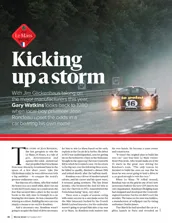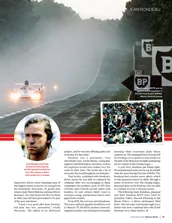Back in France, he won first time out at Pau, and finished third in the championship, going on to finish in the top three at every subsequent F3 championship of the 1960s.
He also raced in Formula 2, where he survived a violent crash at Monza in 1968, when his car rolled and threw him clear.
He recovered from a broken leg to win the F3 title in 1970. Jassaud then moved up to Formula 2 full-time from 1971 but his single-seater career began to stall, with a third-place finish at Pau the highlight of the season.
“Pironi was glad to be quicker, and I was happy for him to feel that way”
Plans for a Formula 1 drive never materialised and so he turned to sports cars.
He first raced at Le Mans in 1966 and 1967 with Henri Pescarolo, and became a race regular in 1973 when he and Jean-Pierre Jabouille finished on the podium in a Matra-Simca. Another podium came two years later in the Gulf-liveried Mirage-Ford.
And then Jaussaud joined the Renault Sport juggernaut for 1977, firstly in a testing role and then as part of the starry driver line-up that included Derek Bell, Jean-Pierre Jabouille, Jacques Laffitte and Patrick Tambay.





